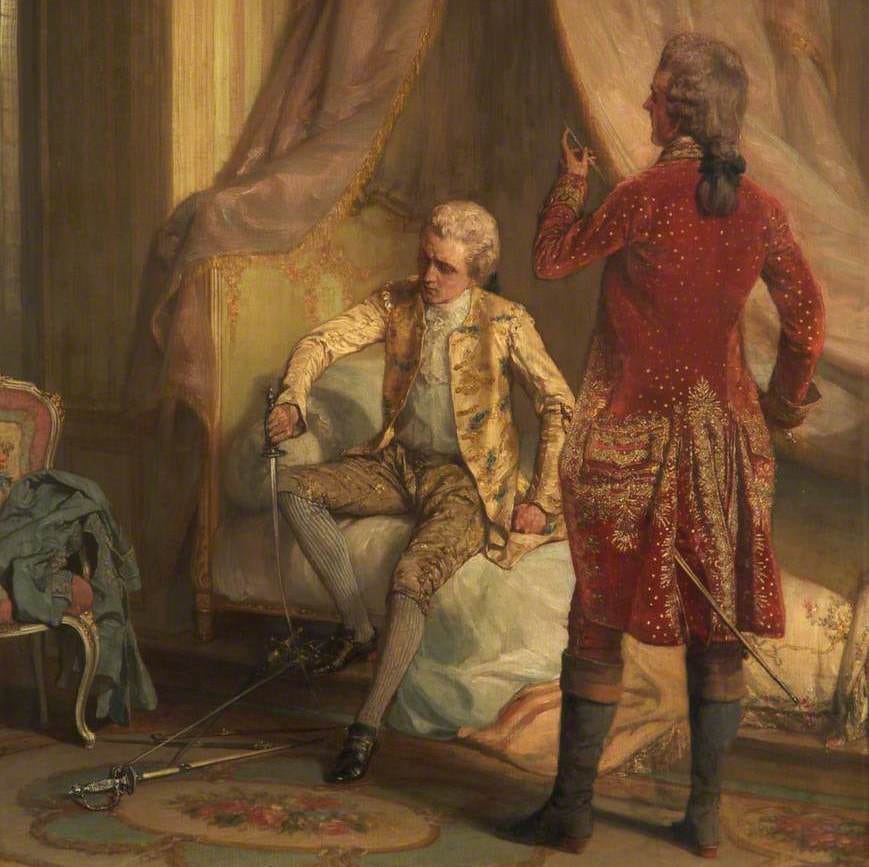Dear friends,
And so we reach the end of our epic Clarissa read-along! There were times I thought I wouldn’t make it through the agonising periods of repetition; or through the protracted, devastating, emotional scenes. Congratulations to everyone who has stayed with the read-along all the way to the end!
I never imagined the novel would close on such a moment of high drama — the final duel. Who the aggressor is remains open to interpretation but it’s clear Lovelace approaches the event with some unease. Might he be weakened by guilt and give the Colonel advantages? Perhaps his need to blame the Colonel masks a deeper need to keep a clear head. Perhaps he has at last discovered true remorse. Perhaps he has even accepted his own culpability.
“Nothing but my cursed devices stood in the way of my happiness… Oh Belford! here was love; a love of the noblest kind! — A love, as she hints in her posthumous letter, that extended to the soul… had I not been a villain— and a wanton, a conceited, proud fool, as well as a villain”
The way Richardson leaves the extent of Lovelace’s remorse unclear brings further depth to the ending. Is Lovelace morally prepared to meet his end? We could debate this for days. To his genuine regret, there clings a trace of self-regard — is he sorry for Clarissa, or sorry for his own loss?
“When I have nothing left me but the remorse of having deprived myself and the world of such a blessing”
The wild frolic Lovelace was hoping for abroad seems never to have transpired. He writes that his life after the duel might include, “a constant course of penitence and mortification... There is no living at this rate — damn me if there be!” There’s vexation in these words, a reluctance to his fate. With his death we are robbed, of course, of the chance to know whether Lovelace’s remorse is genuine; to know how much is a symptom of his lively prose style. In a curious twist, Colonel Morden regrets these unanswered questions too:
“He wishes he had more fully considered those words in his cousin’s posthumous letter: ‘If God will allow him time for repentance, why should you deny it him?”
Thank you to everyone who has taken part in the read-along this year. I hope you’ve enjoyed it. Merry Christmas and Happy Holidays. All the best for 2024!
If you would like to follow our read-along please subscribe below, visit your Substack subscription settings and make sure Letters & Libations is checked. Please get in touch if you would like to be added to the Instagram chat group.
Featured image is ‘The Morning of the Duel’ by Talbot Hughes (1869–1942), courtesy of Rochdale Arts & Heritage Service.





Thank you so much Natalie for guiding us through this epic endeavour. I could and would definitely not have done it without you. The read-along was a brilliant idea, an your thoughtful commentary has softened the sometimes rather painful trudge through Richardson's prose. Now we're out the other side, it all feels worthwhile, and I'm very glad to have been a part of it.